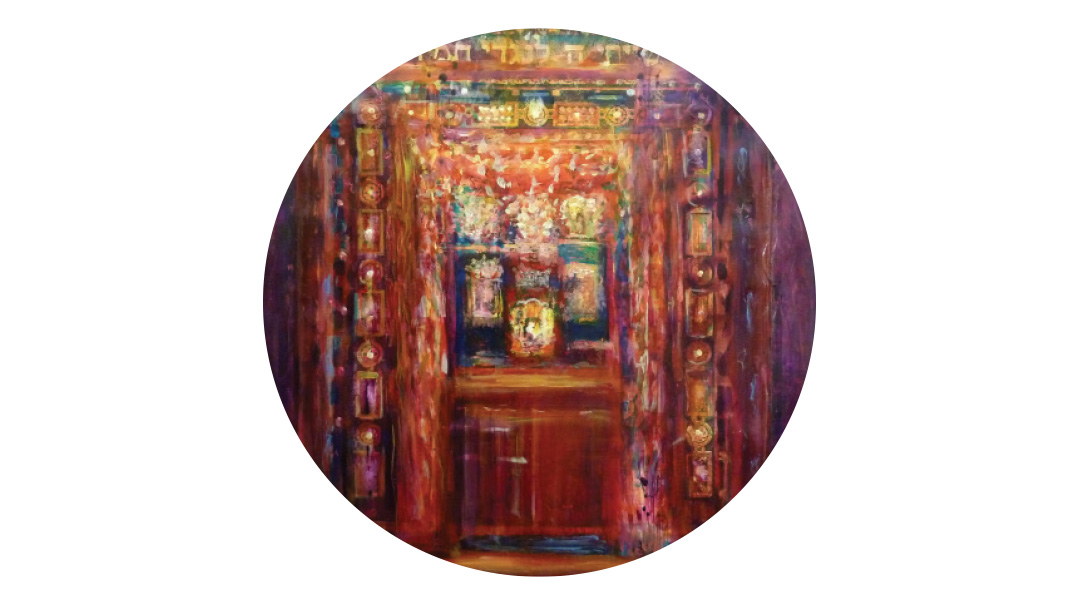To Each His Own Wheel


Why does someone else’s more make us feel like less?
Living “out of town” has many advantages. One challenge, though, is having to travel long distances in order to participate in simchahs and spend time with family. I recall traveling by train in my early childhood, but today, the airplane has become the transportation of choice. Still, many people opt for the most economic method of travel, piling the entire family into a car, minivan, or van and passing through state after state until they arrive at their destination.
The amount of time it takes to reach our destination and the comfort level of our trip varies according to our mode of transport. Each type of vehicle has advantages and drawbacks. A plane is quicker, a car more convenient, a train offers nicer scenery.
Would it make sense for a person traveling by car to blame herself for not arriving at her destination as quickly as her friend who traveled by plane? Would it be logical for a person traveling by plane to bemoan the fact that she didn’t get to see any sights along the way, as did her friend who traveled by train?
As we know, everything in the physical world has a parallel in the ruchniyus world.
The Way We Travel
We all have the same destination in our journey through life. Our common goal is to achieve closeness with the Ribbono shel Olam by doing His mitzvos and emulating His middos. Each of us, however, travels in our own customized vehicle. That vehicle is the sum total of the life circumstances that Hashem has given us — our personality, our health, our family, our job, our community, our blessings, and our challenges. How fast we reach our destination and how difficult our journey is will depend on the vehicle we’re traveling in. Just as it would make no sense for a person traveling by car to compare herself with a person traveling by train or plane, so, too, it is illogical for a person to compare herself to others who are traveling in a totally different set of life circumstances.
And yet, illogical as it may be, we persist in doing it.
We use the “success” of others as a yardstick by which to measure our own success. We look at other people’s strengths, talents, and accomplishments. We look at the family they raised, the chesed they do, the community work they’re involved in. We look at their gourmet cooking, their creativity, their organization, and we start feeling down. Somehow, others being more makes us feel less. Why am I not able to raise kids like hers? Why can’t I be as efficient? Why can’t I be as good a mother, wife, teacher, professional, as she is?
We may feel kinah, jealousy, not for what others have, but for what others are. Rav Wolbe comments in Alei Shur (chelek alef, pp.36-37), that a person who is jealous of others sees only the good in others, while he doesn’t see, or he makes light of, the good within himself.
We need to tell ourselves that we’re not competing with anyone else, only with ourselves. We’re not in a race to see who’s first or who’s best. We’ll be judged not by how far we traveled compared to others in other vehicles but by how far we traveled in the vehicle we were given by our Creator in order to accomplish what we were meant to accomplish in our life.
Comparisons Limit Potential
We are taught that when we leave this world, Hashem will show us an image of ourselves at our full potential. When Avraham Avinu passed the tenth and final test of Akeidas Yitzchak, the malach called out to him, “Avraham, Avraham!” The mefarshim explain the double lashon to signify that after the Akeidah, the image of Avraham was a double image. The image of Avraham, then, exactly matched the image of Avraham at his full potential.
We’re also taught that when we leave this world, three malachim will greet us. One will count our mitzvos, one will count our aveiros, and one will ask, “Heichan Toraso v’im hi sheleimah b’yado — Where is his Torah, and is it complete in his hands?” Rabbi Akiva Tatz quotes the Vilna Gaon, who explains that the third malach is the one who taught us Torah in utero and informed us of our role in the world. This malach will meet us at the end of our life and ask us: Did you fulfill your unique role and become the best person you could be?
As Reb Zishe famously said: Hashem will not ask me why I wasn’t like anyone else. He’ll ask me, “Why weren’t you like Reb Zishe?” When we compare ourselves to others despite the fact that the vehicle they’re traveling in is so very different from ours, it can hold us back from reaching our full potential.
Hashem’s Yardstick for Success
When we feel unsuccessful compared to others, we need to remind ourselves not only that we’re traveling in a different vehicle, but also that Hashem’s yardstick for measuring success is very different from the yardstick people use. People judge by tangible outcomes. Hashem judges by effort and the amount of internal struggle — by how much resistance we overcame given our natural inclinations, our personality, our family, and our life circumstances.
Rashi teaches us that Lot merited to be saved from Sodom and to have two nations descend from him, as a result of his not divulging to Pharoah that Sarah was Avraham’s wife and not his sister, as Avraham had claimed (Rashi, Bereishis 19:29, and Rashi, Devarim 2:5). Let’s keep in mind that Sarah was Lot’s sister, and Avraham was Lot’s brother-in-law, uncle, rebbe, and benefactor. Which decent human being would inform the king that Sarah was Avraham’s wife, knowing that the king would murder Avraham and take Sarah for himself? Isn’t Lot’s heroic act of risking his life to bring strangers into his home in Sodom more worthy of reward?
Rav Dessler quotes the Alter of Slabodka who explains that for Lot, not informing Pharoah that Sarah was Avraham’s wife was a much nobler act than risking his life to take in guests. Lot, who had lived in the home of Avraham Avinu, had absorbed the value of hachnassas orchim until it became his second nature. Since the deed wasn’t a struggle for him, it wasn’t considered such a great deed (Michtav MeEliyahu, Vol. I, p.115, Kuntres Habechirah, perek daled).
Lot’s struggle was in the area of ahavas mamon, love of wealth. The vehicle that Lot was given by the Ribbono shel Olam was a personality that craved wealth. Lot knew that if he informed Pharoah’s officers that Sarah was Avraham’s wife, he would inherit great wealth. He underwent a tremendous inner struggle before he made what was an incredibly difficult decision for him — withholding the information from the Egyptian officers. His victory in his personal struggle between right and wrong is what made his action so great.
When we find ourselves feeling low because we’re not as “great” or “successful” as others, we need to remind ourselves of the true definition of greatness and success. We need to remind ourselves that any time we feel angry and don’t respond with anger, any time we feel unappreciated and yet move forward, we’ve achieved greatness. If Lot merited to be saved and to have two nations come from him because he was able to overcome his nature and control himself on that one occasion, what merits do we accrue when we overcome our natural instincts and succeed in controlling ourselves?
Each of us is traveling a long and often difficult road in our spiritual journey. True, we can gain from observing others and learning from them, but we shouldn’t drain our energy by comparing ourselves to others who are traveling through life in other vehicles. Instead, let’s utilize our energy to achieve true success, by working hard to stay in control of the wheel, in the vehicle that we were given, to drive the journey of life.
Originally featured in Family First, Issue 632. Rebbetzin Suri Gibber has been involved in chinuch banos for decades, first as general studies principal in Bais Yaakov High School of Miami, and, for the past 15 years, as principal of Bais Yaakov High School of the Twin Cities. She gives adult education classes as well.
Oops! We could not locate your form.







